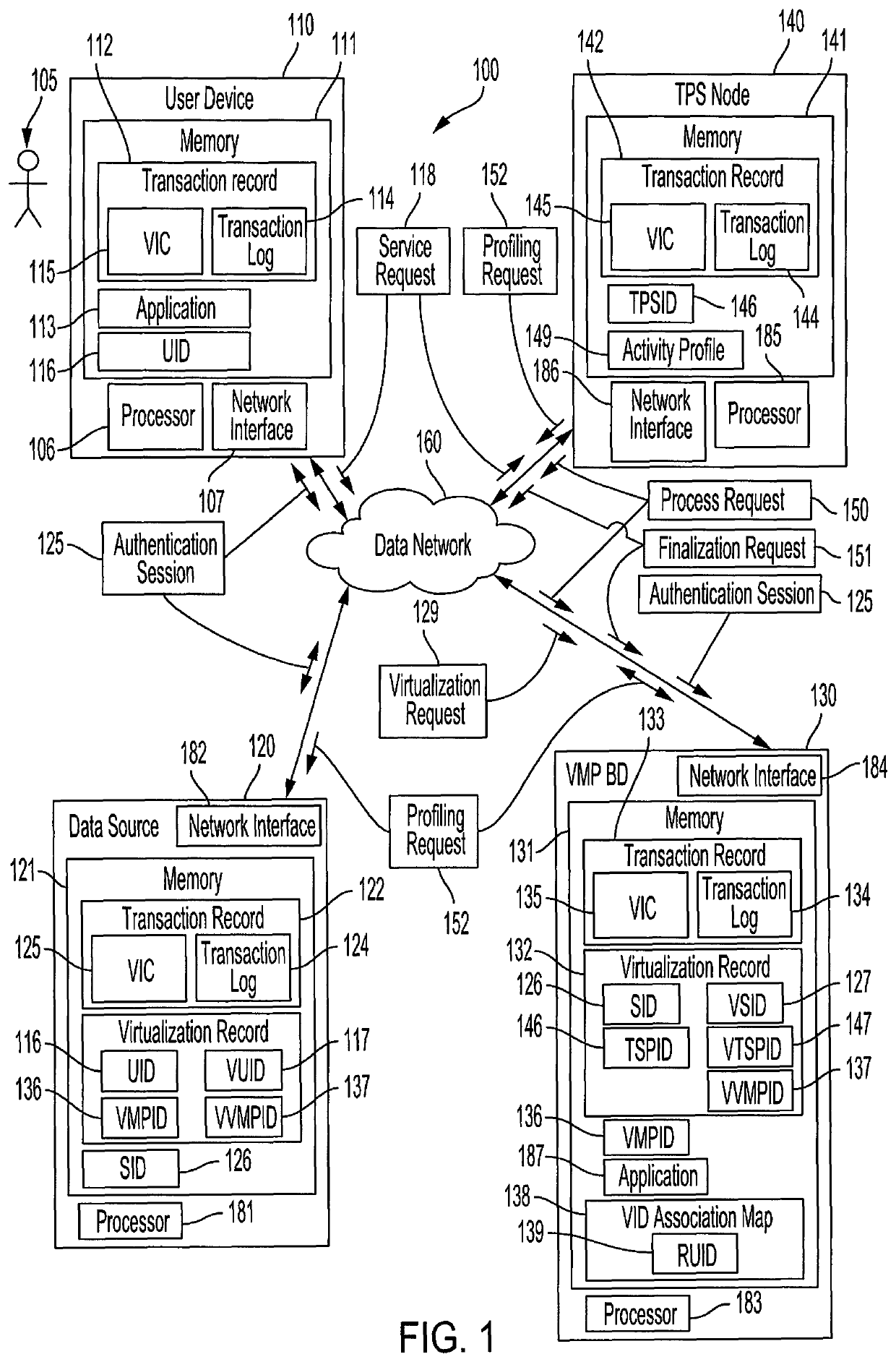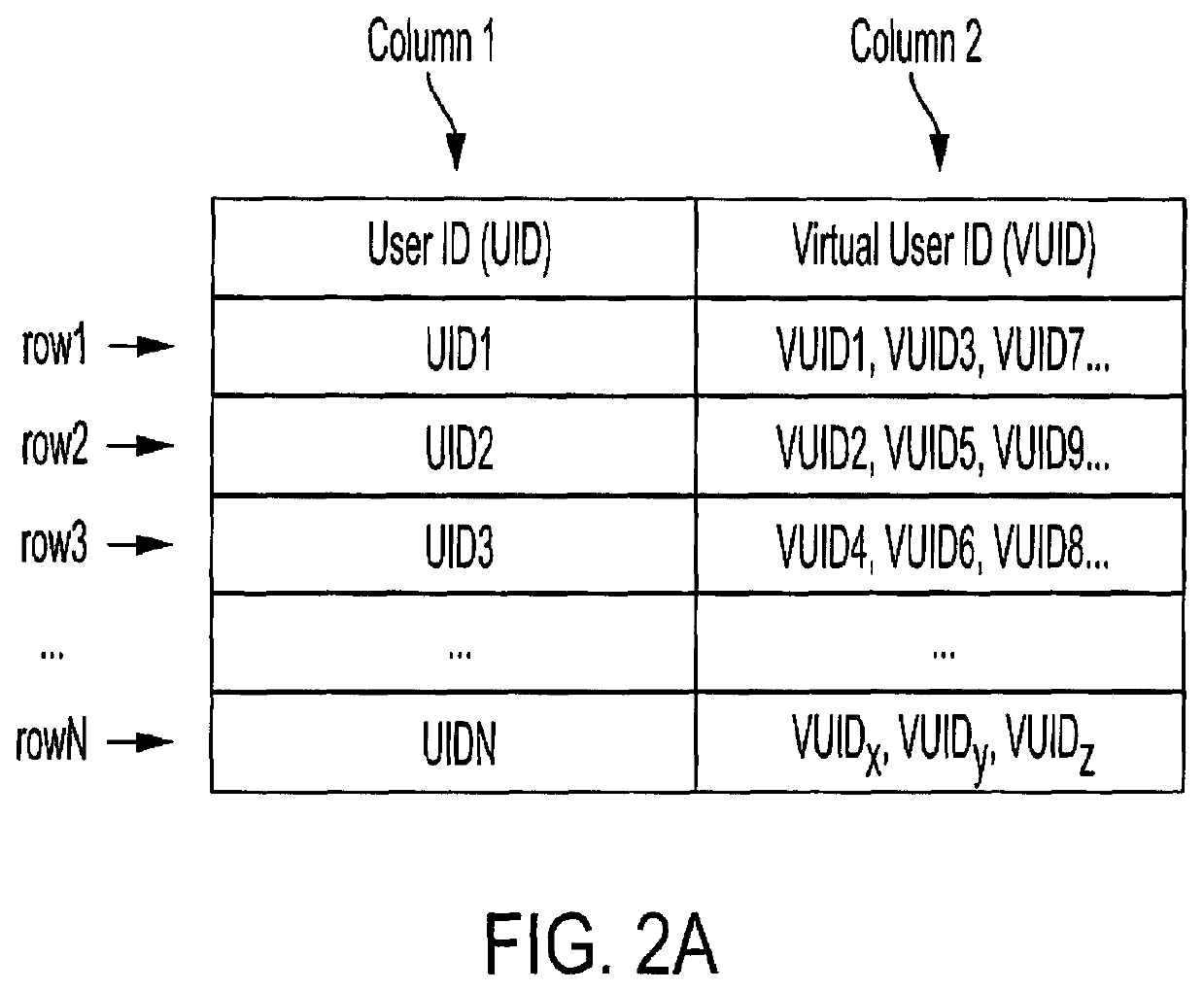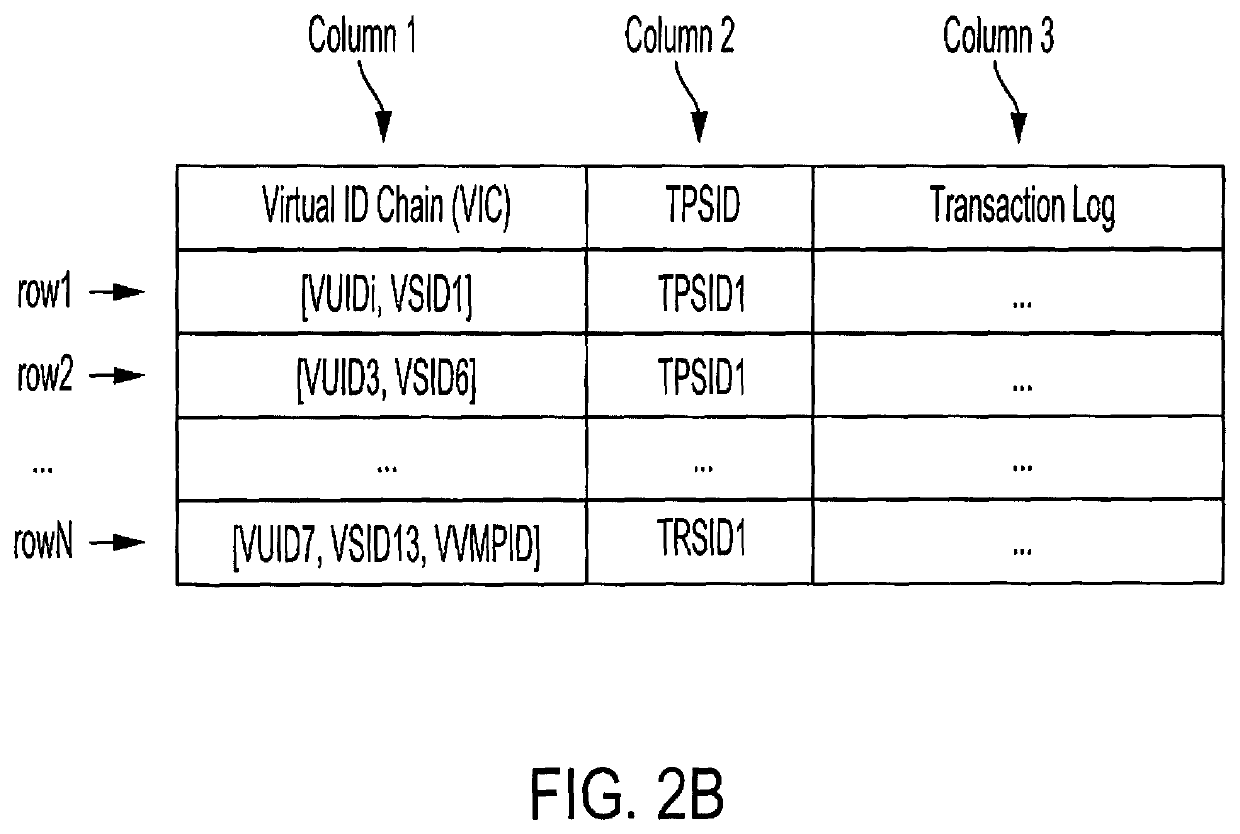Virtualization of user and data source identification
a virtual identity and user technology, applied in the field of permission-based identity management, can solve the problems of countervailing data privacy principles and limited ability of tsp to retain consumer personal data for later profiling
- Summary
- Abstract
- Description
- Claims
- Application Information
AI Technical Summary
Benefits of technology
Problems solved by technology
Method used
Image
Examples
Embodiment Construction
[0019]Referring to FIG. 1, an embodiment of a system for virtualizing the identity of parties involved in a transaction and resolving the same is shown as system 100. As shown in FIG. 1, system 100 includes user device 110, data source 120, VMP 130, and TSP node 140. User device 110, data source 120, VMP 130, and TSP node 140 may be communicatively coupled to one another via data network 160. For example, VMP 130 may use one or more Application Programming Interfaces (API) to interact with user device 110, data source 120, and TSP node 140 over data network 160.
[0020]According to embodiments, data network 160 includes one or more communication networks for facilitating communication between user device 110, data source 120, VMP 130, and TSP node 140. Data network 160 may include wired networks, wireless networks, public networks (e.g., the Internet), private networks (e.g., local area networks (LANs), wide area networks (WANs), etc.), cellular broadband networks (e.g. LTE, CDMA200, ...
PUM
 Login to View More
Login to View More Abstract
Description
Claims
Application Information
 Login to View More
Login to View More - R&D Engineer
- R&D Manager
- IP Professional
- Industry Leading Data Capabilities
- Powerful AI technology
- Patent DNA Extraction
Browse by: Latest US Patents, China's latest patents, Technical Efficacy Thesaurus, Application Domain, Technology Topic, Popular Technical Reports.
© 2024 PatSnap. All rights reserved.Legal|Privacy policy|Modern Slavery Act Transparency Statement|Sitemap|About US| Contact US: help@patsnap.com










